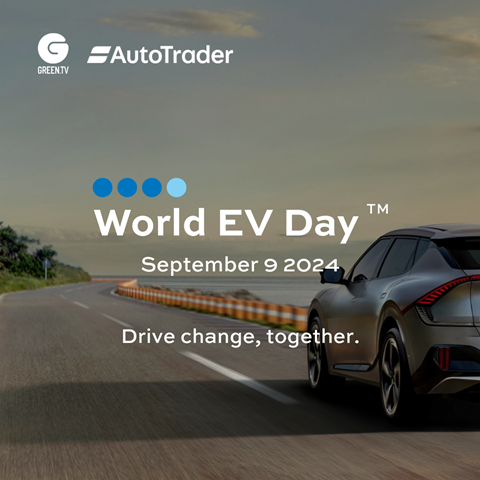
The top three challenges for EV drivers are availability of chargers, cost of charging and chargepoint reliability.
So says a new report from charging solutions company, Versinetic, ‘Charging on the Go: UK Public EV Infrastructure and Payment Systems’, released to coincide with the fifth World EV Day today (September 9, 2024).
The survey gathered responses from 803 people, who had owned an EV for varying lengths of time.
With regards to availability, 35.9% of users experienced difficulty finding available chargers, with 46% of users occasionally encountering non-functional chargers, either due to them being out of order or blocked by ICE cars.
Some 16.6% of those surveyed cited cost as concerning when using public charging stations. The report found that the cost of using public chargers can be comparable to, or in some cases exceed, the cost of petrol, depending on the payment system used.
Meanwhile,14.2% of respondents cited reliability as their third highest concern. Nearly half of them (46%) occasionally encountered chargers that were not functioning properly.
The report underscores the importance of maintenance and real-time fault detection to improve the reliability of public EV chargers. Linked to reliability is payments. Negative attitudes towards the use of multiple apps to manage charging sessions outweighed positive attitudes by a nearly five-to-one ratio.
The report goes on to outline changes that are pivotal to accelerating future EV adoption and supporting the UK’s environmental goals by making public EV charging more user-friendly and economically viable:
• Improved infrastructure: there is an urgent need for robust infrastructure development to increase availability and match the pace of EV adoption, particularly emphasising the economic and environmental benefits of a well-integrated public charging network. Preparing for an anticipated increase in charger demand over the next three-to-four years is critical with strategic investments in more charging stations, especially in under-served and rural areas. More chargers will facilitate widespread EV adoption, reduce ‘charging deserts’ and enhance convenience.
• Reduced charging costs: reducing the costs associated with public EV charging is crucial for enhancing the affordability and accessibility of EVs. The report calls for regulatory adjustments, such as reducing VAT on public chargers from 20% to 5%, to align more closely with domestic charging costs. This, coupled with the recommendation for a unified payment solution, could streamline the charging process and reduce operational expenses. A single national app for payments could simplify transactions and minimise the current fragmentation, ultimately leading to cost reductions and fostering broader adoption of EV technology.
• Maintenance: effective maintenance and rapid fault resolution would ensure that public charging stations are reliable and available when needed. Nearly half of the respondents (46%) occasionally encountered non-functional chargers, stressing that improving maintenance protocols and implementing real-time fault detection systems are critical for building user trust and supporting the EV transition.
Dunstan Power, managing director at Versinetic, says: “Our findings highlight the necessity for an evolved charging infrastructure that not only meets current demands but anticipates future growth. With public chargers still lagging behind EV adoption rates, we are at a pivotal point where strategic decisions on payment systems and infrastructure expansion, especially in under-served areas, can significantly influence the adoption trajectory of EVs. Scalable solutions must be implemented with greater urgency as we aim to prevent the logistical and economic repercussions of inadequate infrastructure.”
Julian Skidmore, Versinetic’s EV industry analyst and co-author of the report, adds: “The feedback from EV users is clear – they want a seamless and reliable charging experience. Achieving this requires us to tackle the frustrations users face with the current multiplicity of payment apps and the frequent encounters with non-functional chargers. By reducing the complexity of payment systems, perhaps consolidating them into a single, user-friendly national app, and ensuring the dependability of the charging stations through robust maintenance protocols and real-time fault detection, we can enhance user satisfaction and support the broader transition to electric mobility.”
World EV Day was founded by Ade Thomas, and his sustainability media company, Green.tv, in partnership with ABB, a global technology company. The first World EV Day – on September 9, 2020 – was created to raise awareness and promote the shift to EVs worldwide.
World EV Day is today described as a “day of activations and announcements that continue to propel the emobility movement across the globe”.
Joe Dharampal-Hornby, head of public affairs and communications at UKSIF (UK Sustainable Investment and Finance Association, comments: “World EV Day always presents an opportunity for the UK to take stock of its transition to EVs, but this September also marks one year since the previous government rolled back on the ICE phase-out date. That decision undoubtedly damaged investor and consumer confidence in the market, but going forwards, policymakers still have a key role to play in accelerating the adoption of EVs.
“This includes providing renewed certainty on the internal combustion engine phase out date, as well as supporting the expansion and standardisation of EV infrastructure, including charging points. To achieve the UK’s target of 300,000 EV charging points by 2030, installation rates must increase by 60% on the current pace and should be located equitably across the country. Delivering this should strengthen EV demand, generating economic growth while supporting the green transition of the UK’s transport sector.”
In the UK, various companies are supporting World EV day. For example, BP offered EV drivers 15% off charging over the weekend and the offer is running today too. It is only available via the BP Pulse app.
And the RAW charging network is offering free EV charging today at Alton Towers, Chessington World of Adventures as well as certain National Trust, McArthurGlen and Greene King sites.
Jason Simpson, CEO, RAW Charging, says: “For a third year in a row, we’re delighted to celebrate World EV Day by giving back to the EV drivers of the UK and thanking our hosts for their ongoing commitment to sustainability and reducing emissions.”
































